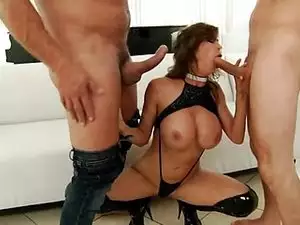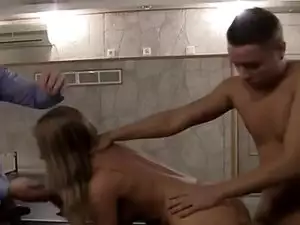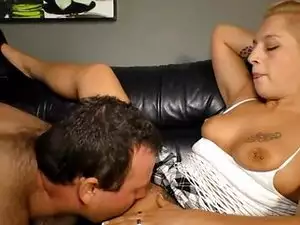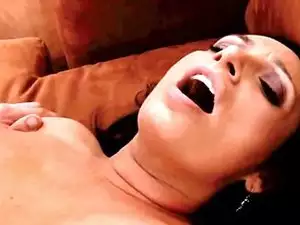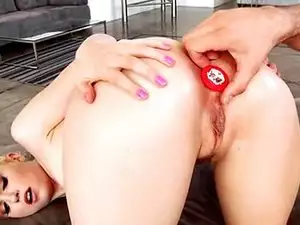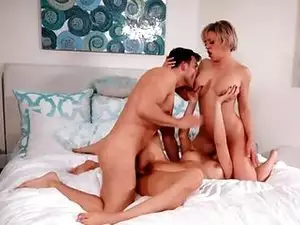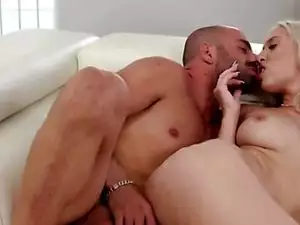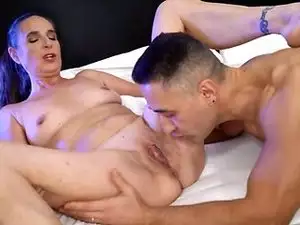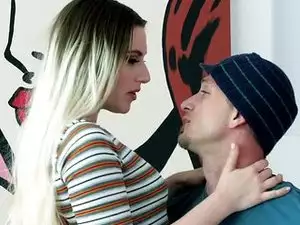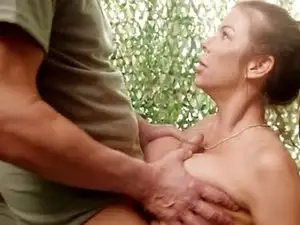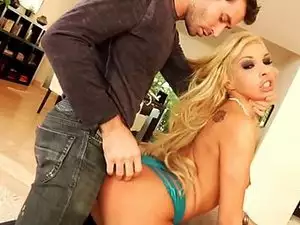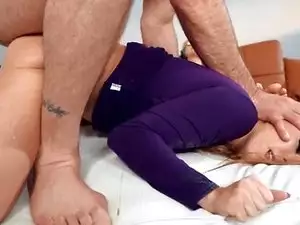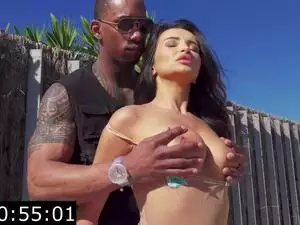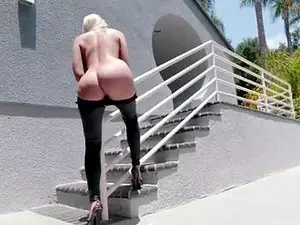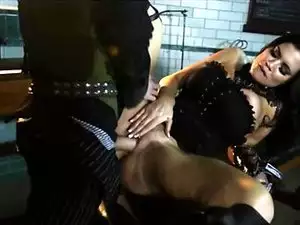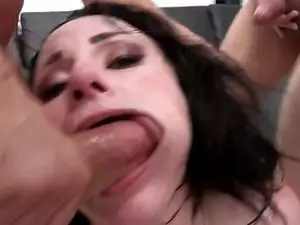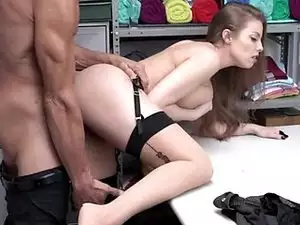Over The Hills And Faraway Book 4: Soldiering OnChapter 10: Bosnia 1993/4 free porn video

The aircraft lurched to the left and rapidly lost altitude. I am only really happy flying when I have a parachute strapped to my back, and my heart had lurched with the aircraft. The airstrip we were heading for was surrounded by mountains, and the Hercules' pilots had to weave a perilous approach into the place. Eventually the plane levelled off and started its descent.
It was the tenth anniversary of Miriam and my wedding, and I had hoped to celebrate the event in the bosom of my family, or rather in the bosom of Miriam, but that had all been knocked on the head three weeks previously, when we had been warned of this deployment to Bosnia.
Those three weeks had simply flown by – two of which had been spent on the training area of Otterburn, near the Scottish border. For men used to the fleshpots of York it came as an unpleasant wake-up call, of what to expect in Bosnia when it came to accommodation, field rations, and weather. Early autumn on the Cheviots, although brisk and fresh, would not be anything like a winter spent in the rugged mountains of central Bosnia.
The exercise was to test the workings of the new battalion set-up, and we were run ragged over tough terrain, day and night, for the entire two weeks.
I assume we passed the test, because we flew out to Bosnia on 18th September, after the battalion had been granted three days leave. We were going to spend the next 4 months in Bosnia, and I don't think anyone was looking forward to it; the only redeeming aspect of the deployment was that we would be home for Christmas.
Before leaving York we had been briefed on the history of the area we were bound for, and what the situation was at present, by an officer from the Intelligence Corp – but unfortunately it was not Mel Brookes. The present troubles in Bosnia, which had recently gained its independence from Yugoslavia, stem from the defeat of the Serbs by the Turks in the 14th Century, and the subsequent Muslim conquest of the Balkans.
I had thought that the Irish had long memories, but these people could give them master classes in holding grudges.
Over the centuries each ethnic group in Bosnia – of which there are three main ones, Serb, Muslims, and Croat–when given the chance to kick lumps out of the other two would take it with gusto. Well, "ethnic" is probably the wrong word, because the groups all speak the same language and descend from the same mob of barbarians. The difference is partially religious and partially just old-fashioned blood feuds. The Bosnians were mostly descended from Serbs who had converted to Islam and had, naturally, during the long Turkish occupation, been the top dog. The Croats were Serbs who had converted to Roman Catholicism and had been under Austro-Hungarian rule or influence for a couple of centuries. During WWII, it appears that the Croats took up with the Nazis, or at least their main leaders did– we can't tar them all with the same brush – and the Serbs took up with the Soviets, leaving the Muslims as piggy in the middle. I suppose I should say "goaty" in the middle. The Serbs themselves were Eastern Orthodox Christian – hence the connection to the Russians, which pre-dated World War I – and viewed all the other groups as apostate Serbs who needed to be reintegrated into "greater Serbia."
After WWII, Tito, the president of Yugoslavia, managed to keep all three groups together under a communist regime; keeping Yugoslavia out of the USSR but part of the Soviet Bloc. All the western politicians foretold doom and gloom for Yugoslavia – which was one of the many bolted together countries which had emerged from the debris of the Austro-Hungarian Empire at the end of WWI – when Mr Tito eventually popped his clogs, which he did in 1988.
Yugoslavia, a Socialist Federal Republic composed of several semi-autonomous states, including Serbia, Croatia and Bosnia (there are others but I don't want to make it even more confusing), managed to keep going without splitting into separate states and slitting each other's throats until about 1990, so news must travel pretty slowly in these parts. When finally the news did spread the throat slitting began in earnest.
I might not have grasped the complete story as I had dozed off during most of the briefing. What does your average squaddie know, or care, about such things? He is sent to some shite hole, where some of the people greet him as a liberator and others as an invader. The two sides continue to chop each other up, and are not averse to chopping up the poor squaddie sent to keep them apart if he gets in their way. Wherever you go, Bosnia or Northern Ireland, it's the same damn thing. One difference between Northern Ireland and Bosnia was that there were three sides in Bosnia, as if two wasn't enough to contend with.
Our task, that is, that of the NATO forces assembled in-country under the auspices of the United Nations, was twofold.
1: To escort the convoys that carried the humanitarian aid. Unfortunately the various factions wouldn't allow aid to go to their opponents, or at least tried to keep the aid for themselves, and it needed some muscle to persuade them to let the vehicles through their territory.
2: Safeguard the many displaced civilians, who had been driven from their homes by the opposing nationalistic and religious factions.
Even though their underlying ethnicity, except for all the little additives, like Albanians, is pretty much "Serbo-Croatian," even the religious and nationalistic divisions aren't clean and clear cut. There are atheist Catholics and Muslims, Catholic Serbs, Orthodox Croats, Christian Bosnians, and so forth.
We did get into the habit of referring to the Bosnian Muslims as Bosniaks, and they were the main population that was being displaced, both by Bosnian Serbs and by Bosnian Croats – see what I mean about being bloody confusing?
'Safe Places' as they were optimistically called, had been set up so that the displaced Bosniaks would be safe from attack from their former neighbours. Bravo Company was sent to 'safeguard' a town with an unpronounceable name in central Bosnia–Herzegovina, or BH as we tended to call it –Bloody Hell. Alpha and Charlie companies were doing similar tasks elsewhere, as independent commands; so much for the training at Otterburn to exercise the battalion's HQ control and command function over its sub units.
The town we were allocated to 'Safeguard' had a population of about ten thousand, but this had been increased by the influx of displaced people to at least double that number. A great many buildings in the town were either derelict or showed signs of damage, or both, including a church which I think had been Orthodox Christian, judging by the onion shaped dome. The undamaged buildings included a mosque, an open air market, a cinema, a brewery, three bakeries–which were dependant on the grain being brought in by the aid convoys, and a run-down industrial estate on the eastern edge of the town. I pointed out the damaged buildings to Big Ben and asked if there had been any fighting in the area.
"The Bosnian Serbs boycotted a referendum regarding Bosnia becoming independent of Yugoslavia. The local Serbs were then driven out by the Bosniaks when Bosnia declared its independence. The driving out of minorities is happening all over the country, but the Serbs are doing most of the ethnic cleansing as they have most of the military hardware."
"So it's likely that the Bosnian Serbs will want to take this place back under their control?"
Big Ben shrugged his shoulders. "If they do Dewey, then a hundred plus Erbs isn't going to be much of a deterrent."
That cheered me up no end, I can tell you.
The town, which we called Bugs – for obvious reasons – stood on a ridge of land some 30 metres above what would probably be the flood plain of the small river that ran north to south some 500 metres to the east of the town. I assumed that in the spring thaw the river would be filled with the snow melt off the mountains to the east, and would probably over-top the banks, which would be the reason the town was situated away from the river and at a slightly higher elevation. The road that ran alongside the river was the main highway between Split in the south – a port on the Adriatic coast, from which the humanitarian aid convoys originated – and Sarajevo to the north. A smaller road led from the main highway into town, and where this road entered the industrial outskirts was a checkpoint, a sandbagged structure with a couple of slit trenches either side, manned 24 hours a day to stop bombers and gunmen from getting into the town and causing mayhem.
My section was to take over from the unit currently manning the checkpoint, and we drove down in a Land Rover. The men were from a Yorkshire regiment, and by the look of them it was high time they were relieved. They looked absolutely knackered, and stretched to their limit. Some of them were exhibiting the '1000 yard stare', and showing that they were at the end of their rope. Their section corporal said little as he showed me round the position, except to say that there was little traffic along the road other than the aid convoys, and "this place makes Northern Ireland look like a vicarage tea party." I found it strange that there was no chatting between the lads, as there is always a bit of piss taking and humorous banter when two units meet up.
Just before turning to leave the Yorkshire corporal said. "You'd best have your lads carry their entrenching tools when out on patrol. They'll need them more than their rifles." With that cryptic comment he left. I found out what he meant the first time we went on patrol.
On the main highway, about 2 miles north of Bugs was was a Bosniak village, comprising of about two dozen houses, a small mosque and several small farms. Our patrolling was supposed to deter Bosnian Serb attacks on them.
Basically, in the area around Bugs, the Bosniaks were being attacked by the Bosnian Serbs. In other areas it was the other way round, or it was Bosniaks and Croats kicking lumps out of each other. We were 'protecting' the Bosniaks, but our mandate was so loose and woolly that we were as much use as ash trays on a motor bike when it came down to it. We couldn't patrol in areas held by the Bosnian Serbs unless they gave us permission. We couldn't open fire unless fired upon. We couldn't conduct hot pursuits of gunmen into Bosnian Serb held territory. The list was endless of what we couldn't do. All we seemed to be were garbage men sent in to clear up the shit.
The land to the west of the river was good farming land, or so I was told, and this was the bone of contention between the local Bosniaks, who farmed it now, and the Bosnian Serbs who lived up in the high ground to the east – to which was now added those Bosnian Serbs driven out of Bugs –whose ancestors had farmed it prior to the arrival of the Turks in the 14th century. The Bosnian Serbs planting the explosives along the road, and generally terrorising the locals, were probably those who had been driven out of Bugs.
Big Ben accompanied my section when we made our first patrol. We had two Land Rovers, which would give us scant protection if the local Bosnian Serbs opened up with RPGs, but according to the Yorkshire corporal they were only armed with light machine guns and AK-47s.
We crawled along in second gear, eyes swivelling back and forth like spectators at the Centre Court of Wimbledon. I was in the front vehicle and as we came round a slight bend I spotted a dark shape in the road. Both vehicles stopped, and we jumped out and took up an all-round defensive position –not that the body in the road would do us much harm.
We had learned in Northern Ireland that bodies dumped at the roadside were often booby trapped. As soon as you lifted the body the grenade underneath would explode, killing or wounding anyone standing close by. The procedure was to approach the body, checking for trip wires or anything suspicious. The corpse then had to be rolled, so that anything nasty underneath could be spotted, or as was more likely, explode. The trick was to keep the dead body between your live body and any suspected explosive underneath the corpse, as you rolled it over.
I lay down alongside the body, a young bloke of about twenty. I couldn't tell what ethnic group he belonged to because, and I don't want you to think I'm a racist when I say this: all the inhabitants of BH looked the same to me, probably because except for religion and their particular feuds, they were all the same ethnicity. I rolled him over, using his body as a shield, and there was no grenade or explosive under his body, neither was there a pair of bollocks as he had been disembowelled, and I was covered in sticky, semi congealed blood. I admit to swearing.
We dug a shallow grave at the side of the road, and marked it with a piece of wood. I determined from then on I would tie a rope to any body dumped on the road and pull on it with the Land Rover. Not very respectful to the poor departed soul I admit, but a damn sight quicker, and less messy, for us.
- 02.12.2021
- 44
- 0




